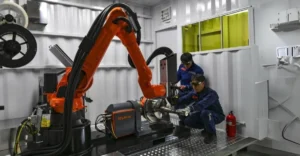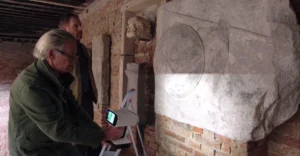X-Bow receives additional Pentagon funding to advance 3D printing technology for solid rocket motor propellant.
The U.S. Department of Defense has awarded X-Bow Launch Systems a $9.85 million contract modification to further develop its 3D printing technology for solid rocket motor (SRM) propellant, bringing the total contract value to $28.67 million.
The new funding will facilitate X-Bow’s efforts towards new-generation propulsion systems with updated scope of work technical specifications directed towards the design and fabrication of 3D printed solid rocket propellant.This particular innovation in the sector of defense interesed many individuals due to the possible savings in time and cost involved in the saving process.
Officials at the Pentagon report, ‘Work is to be conducted in Albuquerque, New Mexico,’ which has a set completion date of September 13, 2026. “The contract will be administered by the Air Force Test Center at Edwards Air Force Base in California.” It has been reported that the contract comes with foreign military sales credits, indicating some foreign interest in the technology.
Founded in 2016, X-Bow Launch Systems focuses on advanced solid fuels and additive manufactured rocket motor technologies for the defense and aerospace industry. The company came out of stealth in 2022 after raising $27 million dollars in a Series A round led by Lockheed Martin Ventures and Crosslink Capital alongside Razor’s Edge Ventures and Broom Ventures.

Shortly after securing this initial funding, X-Bow delivered its mobile 3D printing unit, Pathfinder I, to the U.S. Air Force Research Laboratory at Edwards, California, for testing under the Eternal Quiver Program. This compact, containerized facility was specifically designed to address long lead times in rocket prototyping by enabling on-demand fabrication of SRM components and fuels.
The Pentagon’s expenditure on 3D printing for SRMs is in tandem with efforts geared towards enhancing the domestic production of vital defense parts. Other examples include Ursa Major and Raytheon Technologies successfully missile flight testing a long-range SRM for the US Army which was completed in under 4 months using Ursa Major’s Lynx 3D printing technology.
In response to the increasing demand from the Department of Defense, Italian Aerospace manufacturer Avio has also announced increased production of SRMs. The company plans to increase production output at its Colleferro site by 3 times over the next 4 to 5 years and is progressing towards setting up a facility in the US. Avio collaborates with Raytheon to develop a local industrial base and incorporates Velo3D Sapphire 3D printers into its propulsion systems.
The ongoing expenditure towards the advancement of X-Bow’s technology underscores the growth of advanced manufacturing processes in meeting the supply chain issues for sensitive defense parts. This latest sponsorship places X-Bow at the center of the Pentagon’s push to modernize and ensure domestic production of solid rocket motors through the use of 3D printing machinery.
































